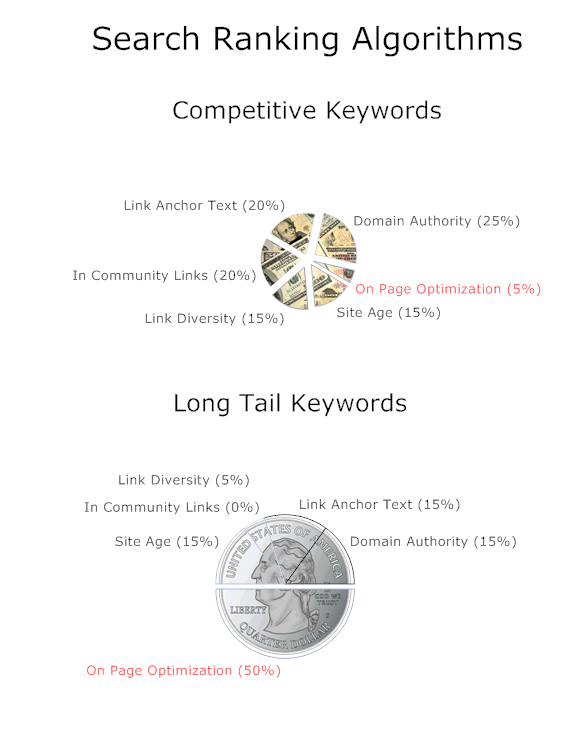For those of you who are unfamiliar with the differences between these two strategies, let's summarize quickly. Having naturally high search engine rank positions (SERPs) for products and/or services is ideal, since traffic from organic search results is free. Getting good organic SERPs requires SEO, which, while requiring a larger investment up front, will yield a higher ROI over time (when executed well).
Sponsored ads (aka Google AdWords ads) can, however, be a great supplement to a solid SEO strategy in many cases, particularly for ecommerce. These ads can provide visibility for highly competitive search terms where obtaining organic SERPs is difficult; used in conjunction with organic SERPs, sponsored ads can also provide a solid branding strategy.
Now, on to the fun stuff.
As a search engine marketer, staying in touch with consumer behavior is critical - which is why I was excited to have the opportunity to put myself in the shoes of a consumer last week.
I've been a light smoker for the past 3 or so years, and while it's been fun, it's time to quit, for some pretty obvious reasons. Rather than going cold turkey, I thought it would be fun to try the new "e cigarettes". Not that I necessarily need the nicotine; I just want something to hold when I get stuck in an oh-so-temping social smoking situation. Also, e cigarettes are typically charged via a USB port, and I think the idea of charging my cigarettes from my computer is pretty hilarious. And awesome.
So I warmed up my fingers, got my notepad ready to take notes, and Googled. Here's what I found:

As consumers often do, I changed my mind mid-query and decided that before looking for vendors, I should look at some reviews. Yes, Google Instant's suggestion that I search for reviews influenced my decision to do so. As you can see, this did not "kill" the importance of vendors being visible in these search results (i.e. SEO), it simply reinforced common consumer behavior. All the more reason for SEOs to take a look at Google Instant's query suggestions and optimize accordingly.
For example, what vendor brands do you see in these organic SERPs? Blu is the only one that is evident, which is important to note. We'll come back to Blu's organic ranking for this term in a moment.
I was intrigued by the sponsored ad titled "Warning: Electronic Vapor", so I clicked. Why did I click? The ad text resonated with an issue which was important to me, the soon-to-be consumer of ecigarettes: what is the effect of ecigarettes on my health? This ad successfully capitalized on a common concern. So far, so good.
Then things took a turn.

What did I think was wrong with this landing page? Well, for starters, it completely fails to deliver on the ad's promise. This isn't a report warning about the health effects of ecigarette vaporizers, it's a list of reviews and, from the looks of it, a pretty biased one at that. There were three brands listed on the page, and the 1st brand, Joy, was the only one the page had anything good to say about.
Importantly, there were no other reviews available to read, making it impossible to verify their supposed findings. I had to wonder where on earth they'd gotten their ratings from. Something smelled fishy.
Also, check out the actual copy. It's rather stiff and uninspired. Not terrible, but also not great. Especially when you factor in the spelling errors.
The kicker: the link to the third product (the only brand I recognized), Blu e Cigarettes, was BROKEN. The person who'd put this landing page together was either incompetent or intentionally misleading. Not great for building confidence.
So, I googled again. This time, I searched for the brands I'd seen on this page. Joy e cigarettes? No reviews to be found. NJoy and Blu had very similar review ratings, and Blu was $20 cheaper. Finally, I went back to my original search term and searched again, this time scanning the organic results. Aside from reviews I'd already seen, what did I find?
Blu e cigarettes.
This time, I googled "blu e cigarettes" and found what I was looking for.
 Take a careful look at the organic listings. The brand itself occupies the first two results, with a slew of positive reviews which follow below. Ironically, the last listing praises Blu for its "great looking website", which other sellers seem to have taken for granted.
Take a careful look at the organic listings. The brand itself occupies the first two results, with a slew of positive reviews which follow below. Ironically, the last listing praises Blu for its "great looking website", which other sellers seem to have taken for granted.I couldn't agree more.
In the end, I steered clear of Joy (which copycats the popular NJoy brand name and appears to be a ripoff of Blu) and ended up buying a Blu starter kit.
Why? Blu had earned my trust. The product had good reviews, their organic listings were solid and they didn't present me with misleading ads or links.
I think it's important to note that the reason Joy's AdWords ad didn't work is NOT because sponsored ads are intrinsically doomed to failure. On the contrary - if I would have seen a sponsored ad for Blu e cigarettes, the confidence instilled in me by the positive organic ranking would likely have incited me to click the ad and cut my time spent investigating products in half. The sponsored ad I clicked on failed because the ad was misleading and the information on the landing page could not be verified by a third party.
The moral of the story?
Sponsored ads can be an effective tool when backed by honesty, off-page brand building and organic SEO. If you have a crappy product no one has anything good to say about, rather than using AdWords, you might consider investing in a product that will inspire consumer loyalty. And please. Invest in some decent SEO, for goodness sake.









